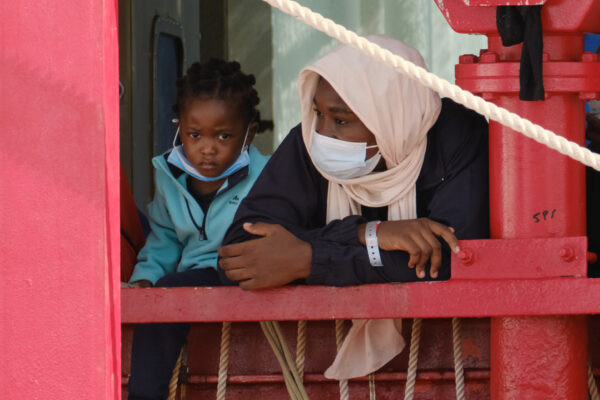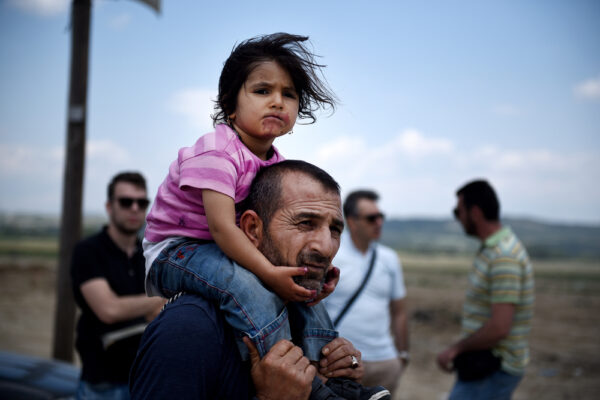Russia’s war in Ukraine has displaced millions of people, most of them women and children. This mounting crisis suggests that conflict-related sexual violence, which has been reported in Ukraine, requires urgent action, say Washington University in St. Louis experts on refugees and displaced populations.
“Ultimately, we must all act to support survivors and prevent such sexual violence in Ukraine and in conflict zones across the globe as part of our long-term strategy to build peaceful societies,” wrote Lindsay Stark and co-authors in a comment piece “Prevention of conflict-related sexual violence in Ukraine and globally,” published in The Lancet May 10.
Stark is associate professor and associate dean for global strategy and programs in Washington University’s Brown School. One of the co-authors on the piece is Kim Thuy Seelinger, research associate professor at the Brown School and visiting professor at the university’s School of Law.

Sexual violence has long been a feature of war, the authors say, but scholarship on the impacts of conflict-related sexual violence provides lessons that can inform and guide prevention.
First, conflict-related sexual violence has considerable detrimental individual and societal effects. Second, rape in war is neither ubiquitous nor inevitable. Although it remains greatly under-reported, existing data indicate that not all armed organizations commit rape. Finally, sexual violence in conflict is preventable at multiple levels, although evidence for preventive interventions remains preliminary.
“From a public health standpoint, evidence points to the potential of multipronged initiatives, such as creating community crisis intervention units, combating attitudes that condone sexual violence both at the population level and within armed groups, and engaging community leadership in initiatives to oppose or prevent conflict-related sexual violence,” wrote Stark and her co-authors.
“Interventions that have successfully protected civilians from conflict-related sexual violence also address resource needs, such as increasing access to firewood and employment opportunities and improved police visibility.”
“Unfortunately, Ukraine is only one crisis marked by such atrocities,” they wrote. “Thousands of Ethiopian, Rohingya, Colombian and Congolese survivors of sexual violence also need protection and support, and many others remain at risk. Establishing international best practices for a coordinated, multisectoral response that includes early medical and psychological care, ethical documentation practices, survivor-centered referral mechanisms and justice systems, and interventions that promote survivor resilience and recovery must be a global health and security priority.”
Other co-authors on the piece are Reine-Marcella Ibala, of Weill Cornell Medical College; Yana Tovpeko of Voice Amplified; and 2018 Nobel Peace Prize winner Denis Mukwege of Africa Evangelical University.


